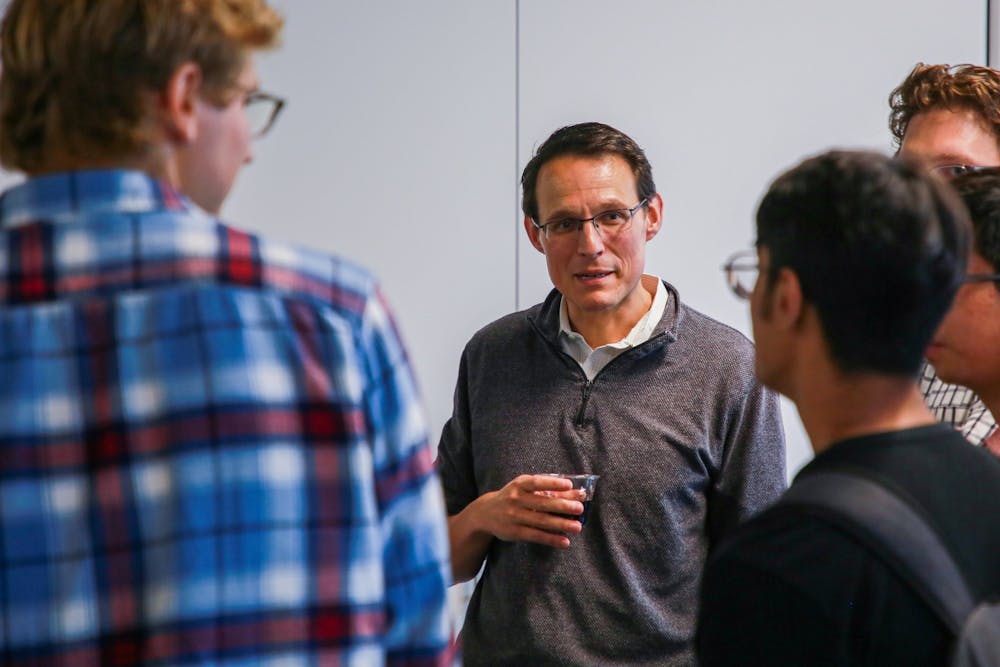NBC News and MSNBC’s National Political Correspondent Steve Kornacki spoke to Penn community members on Thursday afternoon about his career in journalism and the realm of political data reporting.
About 80 students, faculty, and community members attended the event, which was cohosted by Penn's Program on Opinion Research and Election Studies and the Robert A. Fox Leadership Program. NBC's Director of Elections John Lapinski, a professor at Penn, introduced Kornacki and began the conversation before fielding questions from the audience.
Kornacki first explained how exactly he ended up in his current role at NBC and MSNBC, which he has now held for 11 years. He had always had an interest in numbers and in politics, he said, but getting into journalism had been “accidental."
Much of the conversation between Lapinski and Kornacki centered around discussing how much United States elections have changed since they both started working in political reporting. Prior to 2016, Kornacki said that he believed there was a set of unwritten rules in politics that could be used to analyze and predict election outcomes.
"[Former President Donald Trump] did things as a candidate that were supposed to be disqualifying, and he had [polling] numbers that we thought were supposed to be quality disqualifying based on how things worked in the past," Kornacki said. "And yet, he obviously won the election."
Kornacki added that the outcome of the 2016 presidential election left him "humbled," but that it has changed his perspective on elections. He said that he now views each election as a unique event, actively searching to see if old rules apply or new ones come to light.
Later in the conversation, Kornacki highlighted uncertainty surrounding the outcome of the upcoming election. He said this is mainly due to two factors — how he believes Democrats will voice their support for reproductive rights in November and what effect Trump's prominence will have on the electorate.
When the conversation opened for questions from the attendees, Kornacki addressed the influence of social media on the upcoming midterm elections. He added that he believes it is important to be "selective" with one's news consumption.
RELATED:
Philadelphia sees largest increase in average tech salaries
Penn students form campus group to support Josh Shapiro in upcoming gubernatorial election
“If you’re really engaged on the minute-to-minute level on social media, you’re missing the 30,000-foot view," Kornacki said. "Take a break, take a step back, see if you can establish a much broader view of the moment, and you can realize pretty quickly how 98% of the conversation of the moment on social media is probably pointless.”
After the event, Kornacki spoke to the DP about his impression of the political interest among young people today. He said that he finds the number of students interested in politics today to be "heartening."
"It really does feel to me that when I was in college, it was very uncommon to find people who were that interested in politics; now, a lot more people are, it seems to be," Kornacki said.
Following the event, Lapinski said that this conversation served as one of Fox Leadership and PORES’ experiential learning opportunities. He hopes that bringing in speakers like Kornacki who work with data and who are visible in the industry will help students clarify any misconceptions they might hold regarding the media.
“We want to make sure that people realize what they are a part of,” Lapinski said.









